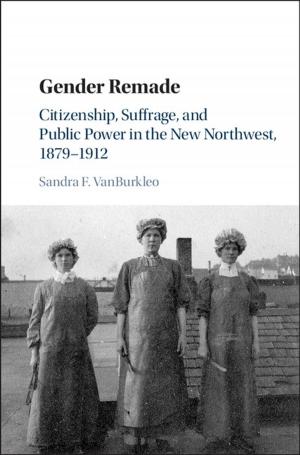The Intellectual World of the Italian Renaissance
Language, Philosophy, and the Search for Meaning
Nonfiction, Social & Cultural Studies, Political Science, Politics, History & Theory, Reference & Language, Language Arts, Religion & Spirituality, Philosophy| Author: | Christopher S. Celenza | ISBN: | 9781108505574 |
| Publisher: | Cambridge University Press | Publication: | December 14, 2017 |
| Imprint: | Cambridge University Press | Language: | English |
| Author: | Christopher S. Celenza |
| ISBN: | 9781108505574 |
| Publisher: | Cambridge University Press |
| Publication: | December 14, 2017 |
| Imprint: | Cambridge University Press |
| Language: | English |
In this book, Christopher Celenza provides an intellectual history of the Italian Renaissance during the long fifteenth century, from c.1350–1525. His book fills a bibliographic gap between Petrarch and Machiavelli and offers clear case studies of contemporary luminaries, including Leonardo Bruni, Poggio Bracciolini, Lorenzo Valla, Marsilio Ficino, Angelo Poliziano, and Pietro Bembo. Integrating sources in Italian and Latin, Celenza focuses on the linked issues of language and philosophy. He also examines the conditions in which Renaissance intellectuals operated in an era before the invention of printing, analyzing reading strategies and showing how texts were consulted, and how new ideas were generated as a result of conversations, both oral and epistolary. The result is a volume that offers a new view on both the history of philosophy and Italian Renaissance intellectual life. It will serve as a key resource for students and scholars of early modern Italian humanism and culture.
In this book, Christopher Celenza provides an intellectual history of the Italian Renaissance during the long fifteenth century, from c.1350–1525. His book fills a bibliographic gap between Petrarch and Machiavelli and offers clear case studies of contemporary luminaries, including Leonardo Bruni, Poggio Bracciolini, Lorenzo Valla, Marsilio Ficino, Angelo Poliziano, and Pietro Bembo. Integrating sources in Italian and Latin, Celenza focuses on the linked issues of language and philosophy. He also examines the conditions in which Renaissance intellectuals operated in an era before the invention of printing, analyzing reading strategies and showing how texts were consulted, and how new ideas were generated as a result of conversations, both oral and epistolary. The result is a volume that offers a new view on both the history of philosophy and Italian Renaissance intellectual life. It will serve as a key resource for students and scholars of early modern Italian humanism and culture.















